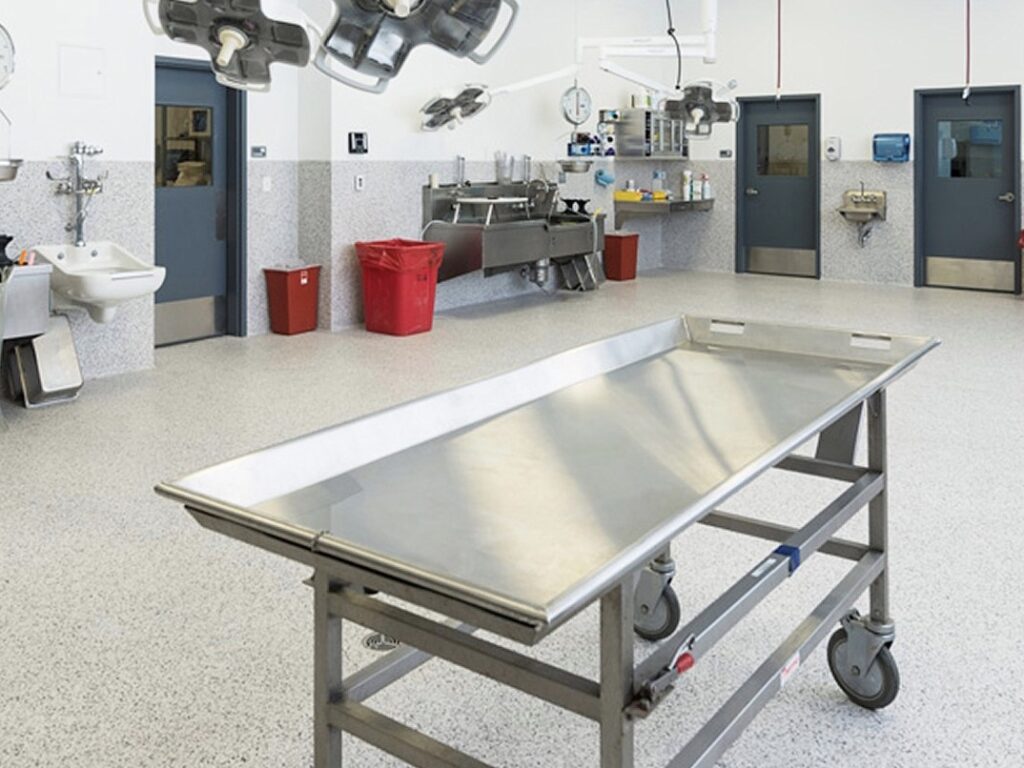September 19, 2022
Private Autopsies

Private autopsies are a fast-growing and lucrative sideline for many pathologists. Enter ‘private autopsy’ in the search bar of your favorite browser, and it will return a slew of websites. Almost all are advertising their availability for autopsy services. Some are national, some regional, some will come to your funeral home.*
Why Private Autopsies?
Coroners and medical examiners in Pennsylvania do not do autopsies “upon request.” Sometimes families desire an autopsy but the C/ME decides they don’t need to do one. Maybe it’s a natural death in a hospital but the family wants a more definitive answer. With hospital deaths, the family should first ask the facility if one of their pathologists can perform a medical autopsy. Maybe it’s concern about neglect or abuse of someone who died in an institutional setting, like a nursing home. The C/ME may review the case but ultimately decide a forensic autopsy is not warranted. In that situation the family would need to arrange for a private autopsy.
Who Does Private Autopsies?
A reasonable place to look for an autopsy pathologist might be the National Association of Medical Examiners (NAME) website. It provides a list of members available to do private autopsies. The College of American Pathologists (CAP) provides a similar service. Here’s a link to the PDF of their 2022 list.
The Philadelphia area used to be fortunate to have Drexel University’s private autopsy service available. The closing of Hahnemann Hospital a few years ago put an end to that. Universities with medical schools in other parts of the country that may do private autopsies include East Tennessee State University (ETSU) and Western Michigan University (WMU).
Most often, however, privately hired pathologists perform private autopsies at a funeral home. That is because most do not have their own facility and cannot use publicly funded resources like medical examiner offices for their personal benefit. Some funeral homes may be able to assist a family with finding someone to do a private autopsy.
Check Credentials!
It’s essential to check the credentials of a pathologist (hopefully it is a pathologist) being hired for a private autopsy. They should at least be board-certified in Anatomic and Clinical Pathology by CAP. Occasionally a board-certified forensic pathologist may be a better option—especially for criminal cases—but they are in short supply and may be more expensive. A pathologist is a physician and should be licensed in the state where the autopsy will be performed.
How Much Do Private Autopsies Cost?
Private autopsies are expensive, often around $5,000. Insurance does not cover private autopsies. At ETSU, the cost for a basic autopsy is $4,000. The cost for a complicated autopsy is $5,000. Toxicology adds another $250-400. Families must also pay the cost to transport the body between the funeral home and the university. Special examination of the brain (neuropathology) is an extra, often costly, expense.
Second Autopsies
Most coroners and medical examiners are going to do a full investigation, including autopsy, on in-custody deaths. Second autopsies will therefore be done longer after the person died and on a body that’s already been dissected. In fact, some second autopsies may consist only of another pathologist providing an independent opinion rather than performing a physical autopsy. In such cases, the pathologist will base their opinion on the records provided by the coroner or medical examiner.
Police-related or deaths-in-custody often result in second autopsy requests by families who don’t trust the system. Examples include the second autopsies of Eric Garner and George Floyd. In early 2022, Colin Kaepernick founded a group that offers to pay the costs of second autopsies for deaths in what the New York Times called “police-related circumstances.”
In 2021, there were four prisoner deaths that fell under the jurisdiction of the Chester County (PA) Coroner. The 2021 Annual Report lists information on all four. One was the sudden and unexpected death of a 34-year-old awaiting trial in prison. The press widely disseminated the district attorney’s comments on the decedent’s alleged crimes. The family did not trust the county’s investigation of the death. A second autopsy was understandably important for this family.
They engaged a forensic pathologist in New Jersey to perform a second autopsy. The two examinations came to the same conclusion of a natural death due to heart disease.
An alternative or complementary approach to truth and transparency for in-custody deaths is the coroner’s inquest, which has unfortunately fallen by the wayside in recent decades. A topic for another time, perhaps.
*Note to Readers: The contents of this post are my independent opinions and based on my own experience and research. I do not receive compensation from any person or facility conducting private autopsies. Christina VandePol